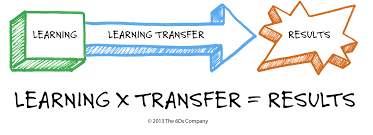by Sam, Management 3.0 Team
In my 35 years, I’ve worked as a DJ, radio host, podcaster, communications writer, journalist, life and executive coach, tour business marketing director and owner, apartment rental operator and ski instructor. Oh and I can’t forget the job I had where I got to write about steel and portable buildings.
My friends never know exactly what I’m doing and my brothers are never sure what to tell their friends when they ask what their sister does for a living. I try to give them generic talking points as in, coach and freelance journalist, or just say journalist with other things on the side, but it always sounds confusing.
It’s confusing because not only have I changed jobs many times, I’ve switched careers and until recently, it’s been something that always slightly weighed on me.
My life has always reminded me of something my basketball coach said to me years ago. He said:
You’re good at many sports, you’re not amazing at any of them.
I can’t remember if I was insulted at the time, but it’s stayed with me and I’ve reverted back to it when looking at my professional trajectory, wondering if I’ve done too many things, many of which I’ve been good at, but perhaps none of which I’ve excelled at.
I’m writing this post because a few months ago I read a fabulous article about portfolio careers (this wasn’t the article, I unfortunately can’t find it but I’ll keep looking). It was the first time I’d heard the term but it resonated with me so much so that it’s changed the way I’ve looked at my life.
Reading this article I realized two things:
- Portfolio careers are becoming the new ‘norm’
- There are huge benefits from delving into several careers, one of which are the transferrable skills we acquire
What is a portfolio career?
Some people call those who dabble in this, as doing “gig jobs”, however I prefer serial career changer. It’s someone who doesn’t just change jobs, but switches industries. Someone who learns about the industry, delves into it and earns their livelihood from it for a period of time, before moving onto the next one. Sometimes the careers overlap where you can be doing two at the same time.
For example, I ran the tour business while launching my coaching company. The main piece of the portfolio career puzzle is that you start doing something completely different. It can be on the side, it can be full time, or it can be in conjunction with something else.
Who benefits from portfolio careers?
Anyone can benefit from it. Typically, it’s people who:
- Are interested in doing many things
- Are open to constantly reinventing themselves
- Who don’t connect with the 9-5

What am I challenging you to do ?
Challenge #1 – OWN IT: If you’re already living a portfolio career, this challenge is specifically for you. If you’re having doubts, like I was, ask yourself what will it take for you to be happy with the way you’re living your life and the way your career is progressing. You won’t thrive in any field if you don’t fully back what you’re doing and how you’re going about it.
Challenge #2 — Recognize your transferrable skills: This is key to realizing the benefits of a portfolio career. Most of us who have worked in one industry for a while wonder how we could ever do anything else. We’re good at one thing, but think we have no experience in other industries. This is a myth!
Every single job has skills that will transfer into another profession. I’ve been working as a freelance journalist for more than 12 years and when I started coaching I realized very quickly how the skill of listening intently and asking open ended questions, was something I’d done as a journalist that very much benefited me as a coach.
Write down the jobs you have now or have had in the past and include all skills that were required for each job. If this is your only job but you want to change, write down skills you think you’d need in your future dream job.
Look for overlaps. Are there skills that show up in several areas?
Challenge #3 – Speak to someone doing it: Find someone whose portfolio career you admire and invite them for coffee. If you’re thinking of dabbling into this arena but don’t know how, speak to someone who’s already doing it and ask clarifying questions. Ask them how they started each of their careers and if they have any advice.
Extra Tips for Launching your Portfolio Career:
- Know how financially stable you need to be in order to feel at ease: Not everyone can just drop one career and start another without any income to keep them sustained. Some people have savings and others have support from family or friends. Before switching careers make sure you know what your threshold is, as you don’t want to be desperate or anxious when starting a new profession and have to be worried about money
- Give it a test run: If you’re unsure if a new industry is for you, give it a shot before diving in. Before I started coaching I took a 4-week phone class to understand more about it. It wasn’t the full certification course, it just gave me a taste of what I’d be getting myself into. I also coached several clients before becoming certified to see if I even liked it and was good at it. As time went on I became certified and then furthered my knowledge and my client base
- Be open to being surprised: You might think you’re getting yourself into one area but then something else pops up that you never expected. Keep an open mind, be flexible and adaptive.

